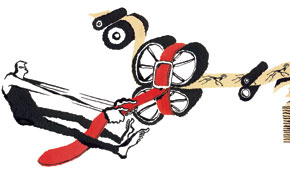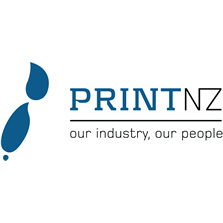
There are no knights in shining armour for the printing industry. The internet is having devastating impacts on the share of spend printers once enjoyed. Job cuts, administrations and bankruptcies no longer come as a surprise. What can we do about it?
One answer is offered by lean manufacturing. The label converting sector is one component of the industry to have identified the need to counter negative trends by promoting techniques and principles of the lean philosophy. The idea is that effective leadership and a focus on continuous improvement should be a strategic imperative for the entire industry. This is what drove LATMA, the label industry’s peak body, to recently run a series of seminars throughout Australia on lean manufacturing.
LATMA has identified a number of examples of waste in the workplace that can be overcome by employing lean principles. These include over-processing, over-production, motion, transportation, waiting, inventory, and scrap and defects.
The lean philosophy involves a customer-focused way of thinking and working. Its objectives are to provide customers with the highest possible quality in the shortest possible lead time at the lowest possible cost, making the most of employees’ knowledge and experience.
The LATMA seminars were facilitated by Michael Taylor from consultancy Lean Capabilities International. “The concept could well be a saviour for the printing industry,” said Taylor. He emphasised that for an organisation to embark on the lean journey of continuous improvement, there must be senior commitment.
“Without senior commitment, attempts to transform an organisation will not be sustained and will lead to frustration for those who want to improve,” he said.
LATMA president Frank Gavrilos agreed. He has noted that manufacturing as a whole is beginning to reap the benefits of lean techniques and that the printing industry can, therefore, anticipate similar gains, citing the opportunities they provide for reduced operational costs and improved efficiency.
Gavrilos said that one of the winning points of these seminars was that they were hands-on. “Everyone commented on the value of practical hands-on methodologies, which brought home visually some relevant issues within their own plant. It also made everyone think about the ‘process’, not just the result”.
Successful change
One component of the seminars was the eight-step model for “successful change”. It showed attendees how to carry out a best practice assessment of their own firms. In line with the practical approach, the seminar also pointed out “implementation actions”, so attendees could go back and start making immediate improvements.
One attendee was Ian Dixon, general manager of Sydney-based Labelcraft. “The principles and the processes certainly challenged our current way of thinking and although so much may well be fundamental, you quickly realise and identify areas that can be improved almost from day one,” said Dixon.
Clear Image technical manager George Lynch also pointed to the operational benefits of having a smoother workflow and “getting things right first time”.
Both label printers said they had already introduced the lean manufacturing concept with ongoing continual improvement programs in place.
Taylor challenged seminar attendees to take strategies from the seminars back to their to achieve a truly lean strategy. The strategies included educating all employees in lean principles in an organised workplace; implementing standardised work; identifying and eliminating waste, learning and applying advanced ‘lean’ tools, such as batch size reductions and the Japanese disciplines of Jidoka and Poka-yoke – the Toyota-developed techniques of diagnosing a defect immediately, correcting it accordingly and “mistake-proofing”.
Lean ideals are still in their early days amid the label printing sector. Sydney-based Adhesif Print Group introduced lean production disciplines in the early 2000s but declined to comment to ProPrint on the impacts lean had made on the firm’s operations.
Queensland Label Makers indicated that implementing their lean program had resulted in significant savings in inventory reductions, speed-to-print processes and improved production methods. General manager Simon Pugh stressed the importance of having established lean committees throughout the entire organisation to enable every staff member to have input to the concept.
“We knew from the beginning that there had to be a better way of doing things. The past two years have certainly confirmed this,” he said.
Comment below to have your say on this story.
If you have a news story or tip-off, get in touch at editorial@sprinter.com.au.
Sign up to the Sprinter newsletter


